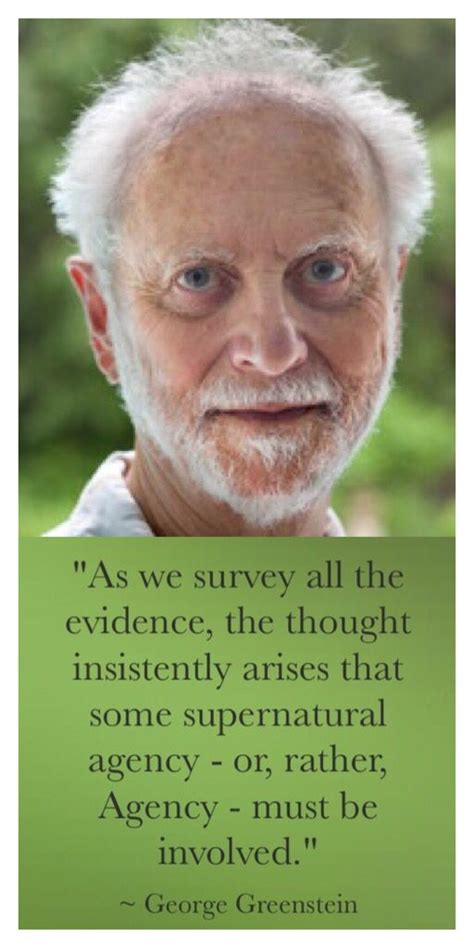A Quote by Edgar Mitchell
It was a dogma throughout most of the 20th century that quantum science only applied to subatomic matter, and we now know that not to be true. One of the major discoveries was Quantum Holography.
Related Quotes
I've been very involved in this quantum holographic formalism and helping to explore it as explanatory of the very root of our perceptual capabilities. It is postulated, for example, that this very basic entanglement, at the quantum level, at the level of subatomic matter, is really a part of quantum mechanics.
Most 20th century academic physicists, and academia as a whole, simply did not want to touch the subject of consciousness. We have seen psychology grow up, and we've seen the development of neurophysiology and other much more sophisticated science, but only in the recent years have the tools of quantum mechanics been applied to anything representing human scale size.
Ancient wisdom and quantum physicists make unlikely bedfellows: In quantum mechanics the observer determines (or even brings into being) what is observed, and so, too, for the Tiwis, who dissolve the distinction between themselves and the cosmos. In quantum physics, subatomic particles influence each other from a distance, and this tallies with the aboriginal view, in which people, animals, rocks, and trees all weave together in the same interwoven fabric.
The downside was that for 400 years, science has grown up, has arisen and developed as a purely materialist concept and avoided the subject of mind and consciousness, leaving it to the realm of religion. Only with the founding of quantum science in the early part of the 20th century have we realized that the Cartesian Duality is wrong, that body, mind, physicality do interact and they're interrelated.
We couldn't build quantum computers unless the universe were quantum and computing. We can build such machines because the universe is storing and processing information in the quantum realm. When we build quantum computers, we're hijacking that underlying computation in order to make it do things we want: little and/or/not calculations. We're hacking into the universe.
This book is unique. I know of no other which so artfully tackles two of the greatest mysteries of modern science, quantum mechanics, and consciousness. It has long been suspected that these mysteries are somehow related: the authors’ treatment of this thorny and controversial issue is honest, wide-ranging, and immensely readable. The book contains some of the clearest expositions I have ever seen of the strange and paradoxical nature of the quantum world. Quantum Enigma is a pleasure to read, and I am sure it is destined to become a classic.
A. Douglas Stone, a physicist who has spent his life using quantum mechanics to explore striking new phenomena, has turned his considerable writing skills to thinking about Einstein and the quantum. What he finds and makes broadly understandable are the riches of Einstein's thinking not about relativity, not about his arguments with Bohr, but about Einstein's deep insights into the quantum world, insights that Stone shows speak to us now with all the vividness and depth they had a century ago. This is a fascinating book, lively, engaging, and strong in physical intuition.































